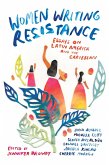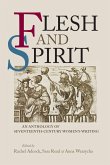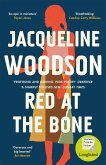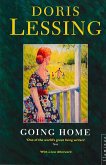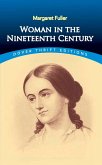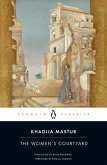First English translations of two early feminist short-story collections, shedding light on the "woman question" at the turn of the 20th century and relating to today's #MeToo movement.
This edition provides the first English translations of two short-story collections - Is That Love? (1896) and Innocence: A Modern Book for Girls (1901) - by the Austrian writer Elsa Asenijeff (1867-1941). Primarily remembered as the lover and muse of sculptor and painter Max Klinger, in her time Asenijeff was a widely read author. Both books engage with "the woman question" at the turn of the twentieth century: Asenijeff thematizes the lack of education and professional opportunities for women and girls, critiques the bourgeois family as a site of patriarchal power, and sheds light on systemic sexual violence. Is That Love?, in particular, dismantles dominant narratives of romantic love and marriage. Written while Asenijeff was living in Bulgaria, and set there, the text also engages with that country's political turmoil. In Innocence, Asenijeff relies on some of the traditional characteristics of Mädchenliteratur, educational literature for girls, but also subverts its conventions. In their introduction, the translators explicate the sociohistorical background of both texts, arguing for Asenijeff's importance in the history of women's writing in the nineteenth- and twentieth-century German-speaking world and placing her within the larger context of the contemporary global #MeToo movement.
This edition provides the first English translations of two short-story collections - Is That Love? (1896) and Innocence: A Modern Book for Girls (1901) - by the Austrian writer Elsa Asenijeff (1867-1941). Primarily remembered as the lover and muse of sculptor and painter Max Klinger, in her time Asenijeff was a widely read author. Both books engage with "the woman question" at the turn of the twentieth century: Asenijeff thematizes the lack of education and professional opportunities for women and girls, critiques the bourgeois family as a site of patriarchal power, and sheds light on systemic sexual violence. Is That Love?, in particular, dismantles dominant narratives of romantic love and marriage. Written while Asenijeff was living in Bulgaria, and set there, the text also engages with that country's political turmoil. In Innocence, Asenijeff relies on some of the traditional characteristics of Mädchenliteratur, educational literature for girls, but also subverts its conventions. In their introduction, the translators explicate the sociohistorical background of both texts, arguing for Asenijeff's importance in the history of women's writing in the nineteenth- and twentieth-century German-speaking world and placing her within the larger context of the contemporary global #MeToo movement.
Dieser Download kann aus rechtlichen Gründen nur mit Rechnungsadresse in A, D ausgeliefert werden.



